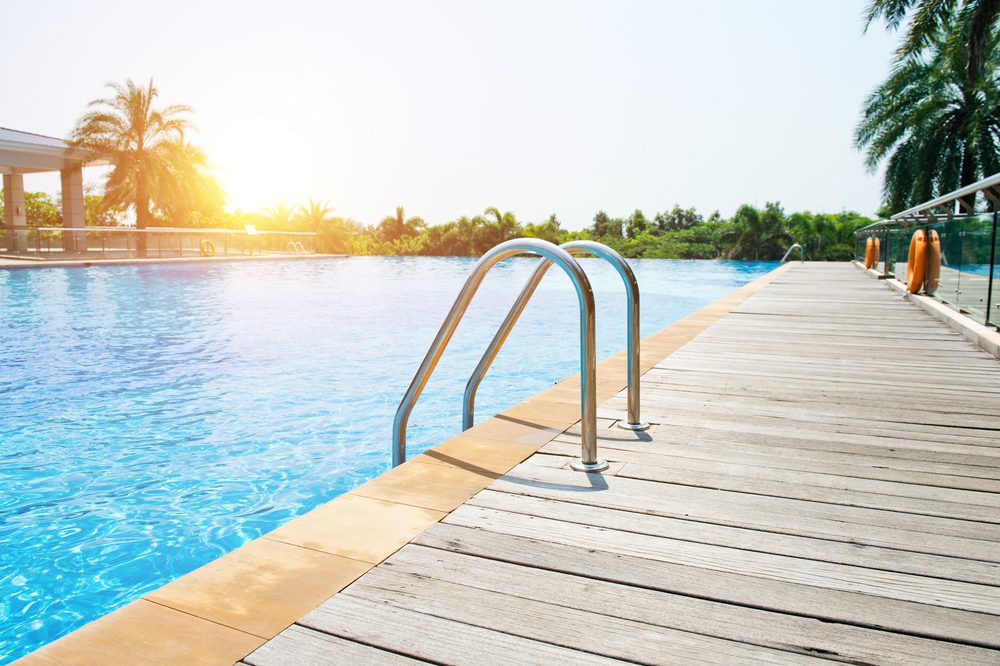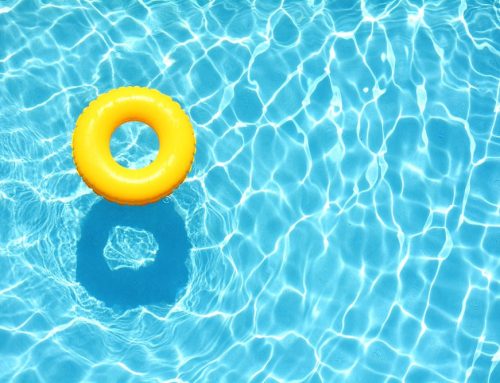You’re going to love having a pool. The additional time outdoors, the exercise, quality time with the family; getting a poolis a great idea. Now you just have to decide on your sanitation system, in other words, your pool water.
Debating chlorine vs saltwater is something a lot of pool owners need to do. Each has their pros and cons which we’ll discuss here, to help find the right choice for your pool.
WHY PEOPLE LOVE SALTWATER POOLS
One of the biggest fallacies about saltwater pools is that they’re the same water as the ocean. However, saltwater in a poolis very different than saltwater from the Pacific. Surprisingly, the saltwater in your pool also includes a small amount of chlorine.
PROS
- While containing some chlorine, the levels are minimal, which means your bathing suits, towels, even deck furniture are likely to last longer.
- The amount of chemicals overall are less in a saltwater pool, that makes the water more tolerable and enjoyable for everyone.
- A saltwater system doesn’t require as much testing or maintenance as a chlorine-based pool.
CONS
- Saltwater is less likely to damage bathing suits and hair, but it’s not as easy on other materials. If you know you want underwater lighting, or other fixtures, they wear out quicker in saltwater. Your pool liner and the heater/filter also doesn’t last as long with saltwater pools.
- Expenses when installing your pool are usually higher with a saltwater Maintenance costs can be a bit higher as well.
- Saltwater pool systems are usually more complicated than others. Repairs need to be done by a licensed technician.
WHY CHLORINE POOLS ARE SO POPULAR
Chlorine has been around since the 1700’s. For decades it was the only way to keep your pool water clean. Since they’re so common, chlorine systems are one of the cheapest sanitation systems to install and maintain.
PROS
- Lower investment and maintenance costs.
- Chlorine systems use less electricity, which is great for minimizing ongoing expenses.
- Accessories and fixtures last longer.
- Most pool repair companies can fix chlorine In fact, some handy homeowners can take care of a few repairs themself.
CONS
- Chlorine can be harsh on the skin, eyes and hair, as well as swimsuits, towels, and deck furniture.
- Bacteria can form quickly so constant supervision is required to limit its growth. Testing the water and adjusting the chemicals is usually required twice a week.
- Chlorine can be difficult to store. Homeowners need to find a dedicated space, free from moisture. This helps keep the chemicals’ components active.
OTHER WAYS TO KEEP YOUR POOL SANITIZED:
BROMINE
Think of bromine as an algicide, oxidizer and sanitizer in one. The smell is mild, and people appreciate how gentle it is on the eyes and bathing suits. Two cons bromine users have noticed is that it’s a costly system to set up, and bromine’s strength is actually depleted when exposed to sunlight (which many pools are).
OZONE
This is a unique and powerful concept to clean pools. O3 gasses are injected into the plumbing. They produce energy by breaking down oxygen molecules. That creates a chemical reaction that cleans your pool. It’s important to note however, breaking down oxygen molecules in this manner also creates a toxic gas that can collect under the pool cover or in pump houses.
UV FILTRATION
In these systems, your pool water is rushed over a UV lamp, destroying bacteria. The downside to this process is that UV systems don’t oxidize the water. Oxidation is essential to fully eliminate non-living substances such as metals or human waste.
FINAL THOUGHTS
This is not a decision you want to rush. Discuss priorities with your family and be honest with yourself about how much maintenance and testing you’re all willing to do. If you have any other doubts or concerns, we’re happy to help. Our team of experts at Trent Pools and Spas love to talk pool water and maintenance, as well as helping to build your ideal pool and outdoor living space.


